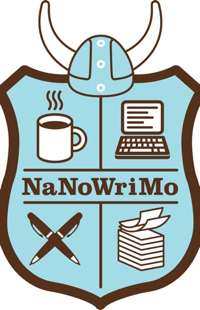Mason writers prepare for 50,000 word novel challenge
Writing a 50,000 word novel in a month?
It may sound ambitious, but it’s exactly what a group of Mason students and faculty are attempting as part of Nation Novel Writing Month (NaNoWriMo), a creative writing challenge that occurs every November.
Since NaNoWriMo began in 1999 with a mere 21 participants, it has grown in popularity with over 200,000 writers working to complete their novels last year.
Mason’s team, sponsored by University Life and the English Department, is only in its second year of participation and is headed up by Debra Lattanzi Shutika, Director of English Undergraduate Programs, and Laura Ellen Scott, Undergraduate Advisor for the English Department.
Last year’s participants included 35 students and faculty members and witnessed the completion of 12 novels.
NaNoWriMo’s guidelines classify a novel as a work of fiction that is at least 50,000 words or approximately 175 pages. To complete the NaNoWriMo challenge, participants must write an average of approximately 1,667 words per day.
On the NaNoWriMo website, writers can enter their word count daily to help track their writing and allow other members to see how there are doing. They are not required to do so, however, and some wait until the last day to enter their work.
“It’s literally taking your mind and dumping it onto a notepad or into a word document,” Jennifer Jablonski, junior English major and fifth year NaNoWriMo participant, said of the process.
Jablonski, along with 23 other writers, attended the “NaNoWriMo Kick-off Event” Tuesday night, during which Mason Editorial Director Colleen Kearney Rich shared helpful tips for surviving NaNoWriMo.
“I managed to get out of here [Mason] without ever writing a longer story than perhaps 25 pages,” said Rich. “NaNoWriMo provided an opportunity for me to take a stab at it.”
Showing up for designated writing times, saving editing for the end, and adding confusion to the story, were among the strategies Rich discussed. Also talked about were unconventional ways to increase your word count, including the addition of stutters and one woman’s approach by adding a sex scene whenever she hit a wall in her writing.
The program will be hosting write-ins throughout the month of November on Mondays from 3-4:30 p.m. in Robinson A, room 447 and on Thursdays from 6-7:30 p.m. in Fenwick Library (on the first floor behind the reference desk).
“Even though it kind of sounds silly, it actually makes a difference if you are in a room with other people who are doing the same work,” Shutika said. “Our hope is that students will recognize one another, they’ll start to meet to talk about the work that they are doing in NaNoWriMo, and possibly form writing support groups.”
Mason’s Undergraduate English Society (UES) is also taking a lead in organizing NaNoWriMo by holding its own monthly write-ins.
The first scheduled write-in with UES will be held Friday, Nov. 4 from 8 p.m. until 10 p.m. at the Starbuck’s on the Fairfax campus.
Although no one from Mason has had their NaNoWriMo published, the team is optimistic it could happen this year.
The notion may not be so far-fetched since the program has, historically, led to the publishing of several novels including the New York Times Bestseller, “Water For Elephants” by Sara Gruen.
If you are interested in joining Mason’s NaNoWriMo group, email Debra Lattanzi Shutika at dshutika@gmu.edu or Laura Ellen Scott at lscott@gmu.edu.
Other NaNoWriMo resources:

